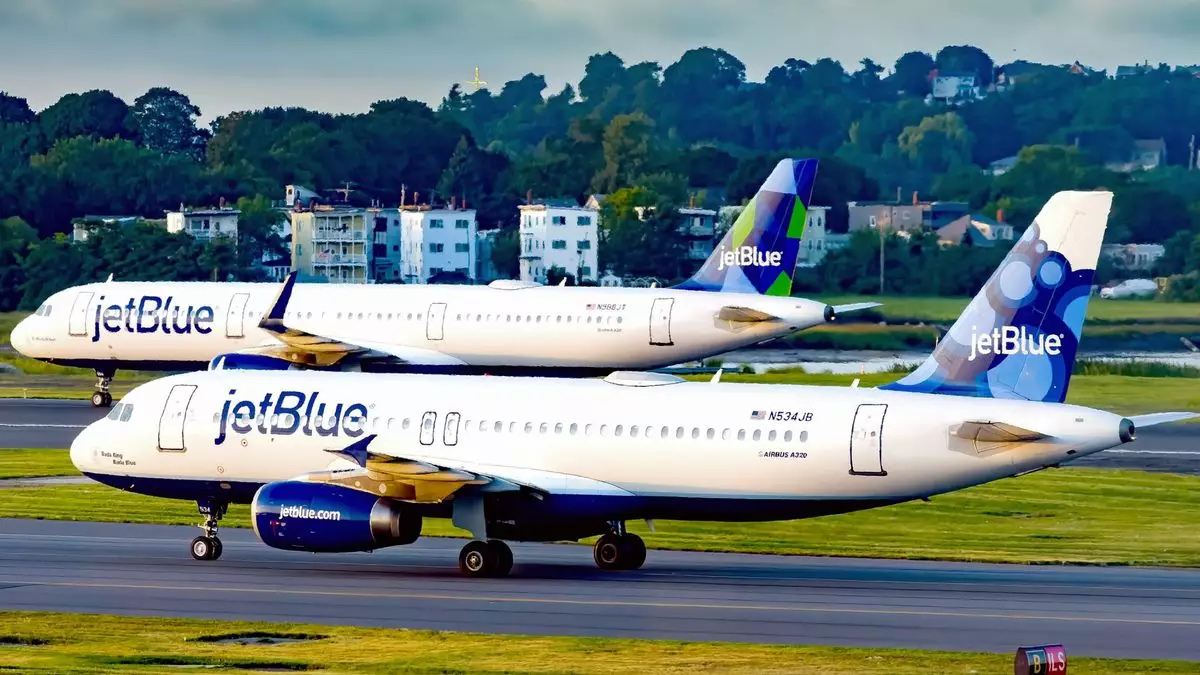In a bold move to realign its operational focus, JetBlue Airways has announced significant route cuts, including its service to San Jose, California. This decision comes as part of a broader strategy aimed at enhancing fleet efficiency and profitability by shifting attention toward its primary markets in the Northeast, Florida, and the Caribbean. Such adjustments reflect the airline’s ongoing effort to stabilize its financial standing post-pandemic and tailor its offerings to meet customer demands more effectively.
Historically, JetBlue’s presence in San Jose was minimal, consisting mainly of seasonal flights to major cities like Boston and New York’s JFK Airport. The recent announcement confirms not only the cessation of operations in San Jose but also reveals the termination of several other routes, including four from JFK—destinations such as Miami, Milwaukee, Austin, and Houston. Additionally, JetBlue will discontinue its direct service from Westchester County Airport to Charleston, South Carolina, as well as flights from Jacksonville to Fort Lauderdale. Most of these alterations are set to take effect by April 30.
Shifts in Product Offerings
Another noteworthy adjustment involves the discontinuation of JetBlue’s Mint business class service on its Seattle route, alongside the decision to end service between JFK and London Gatwick. This specific London route had already undergone significant changes, transitioning from year-round operations to summer seasonal before the ultimate cut. These moves reflect a targeted refinement of JetBlue’s service offerings, emphasizing more lucrative routes while discontinuing those that may not fit within their new strategic framework.
Strategic Realignment and Future Plans
JetBlue has articulated that these cuts are not merely reductions but rather a strategic redeployment of resources toward high-demand markets. The carrier aims to take its Mint-equipped aircraft and direct them to regions where demand is anticipated to surge, including potential routes in Europe. The airline has assured its customers that details regarding this capacity redeployment will be revealed in the coming weeks, indicating a proactive approach to meet evolving travel patterns.
JetBlue’s decision is emblematic of a larger trend within the airline industry as companies navigate the post-COVID landscape. The necessity for sustainable profitability has compelled many carriers, including JetBlue, to reassess their route networks. In a notable move, JetBlue had previously announced plans to withdraw from over 50 routes and terminate operations at 15 different destinations this year. This repositioning of service marks a significant shift in the competitive airline landscape, where airlines must be both agile and strategic to retain customer loyalty and ensure fiscal health.
As JetBlue navigates these turbulent waters, its focus on core markets and elimination of less profitable routes underscores a commitment to long-term viability. By prioritizing demand-driven services and adapting to the shifting dynamics of air travel, the airline aims to secure its place in a competitive market. Though these changes may cause temporary inconvenience for some travelers, the broader implications point toward a more sustainable and efficient operation that could ultimately benefit the customer experience in the long run.

